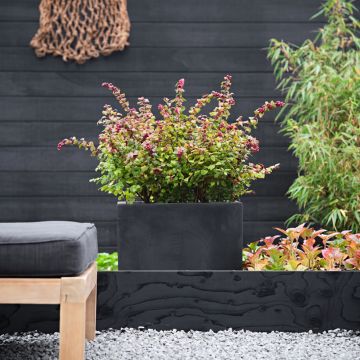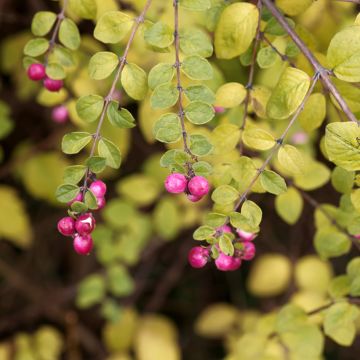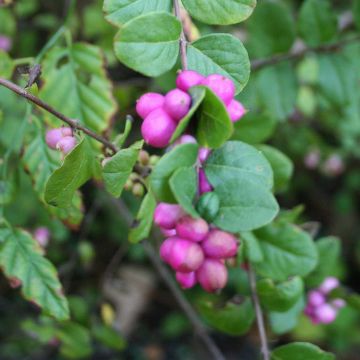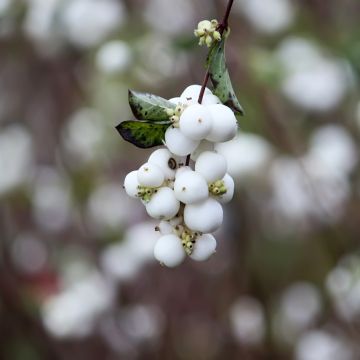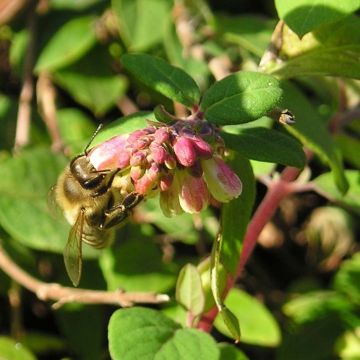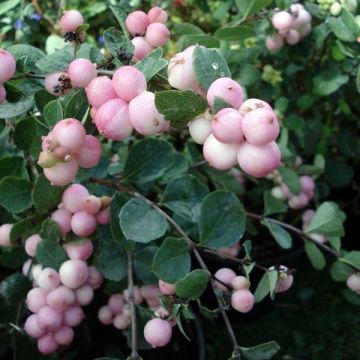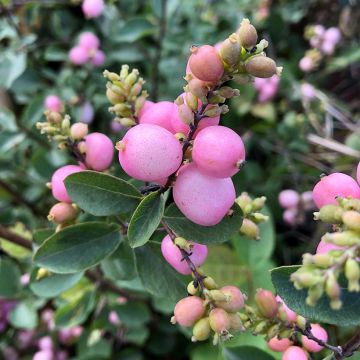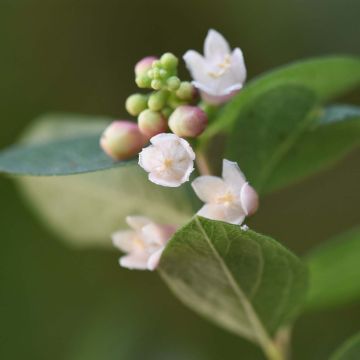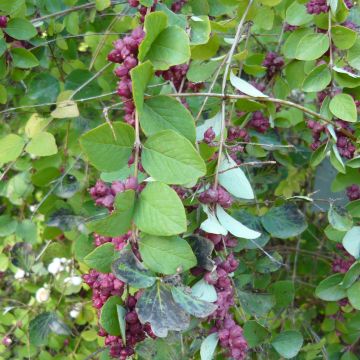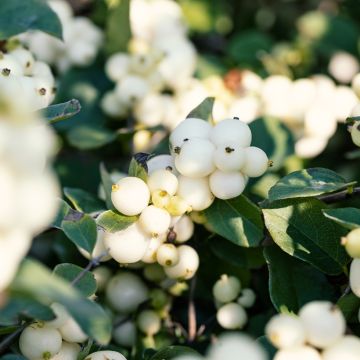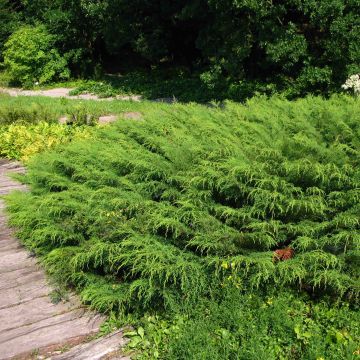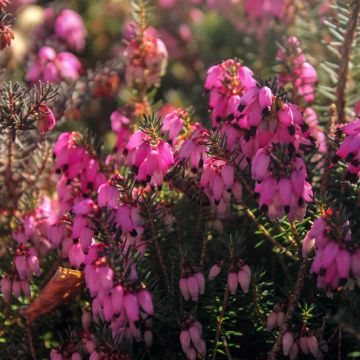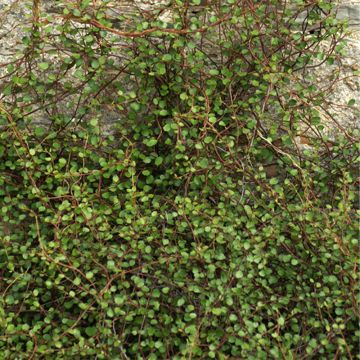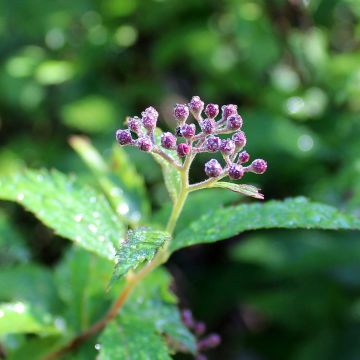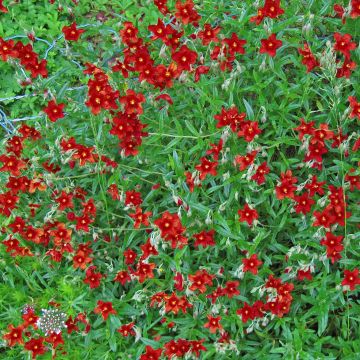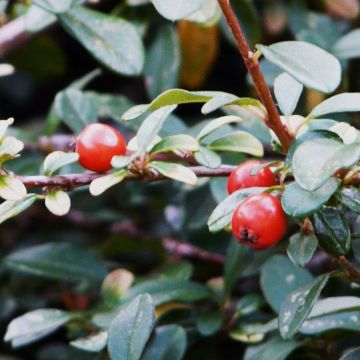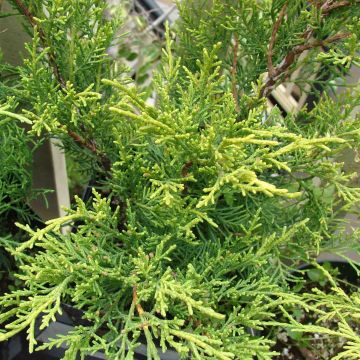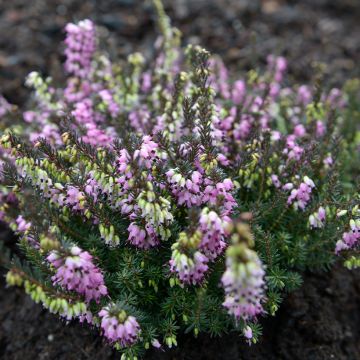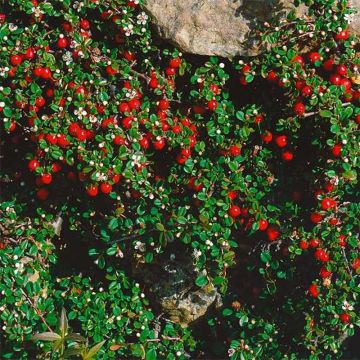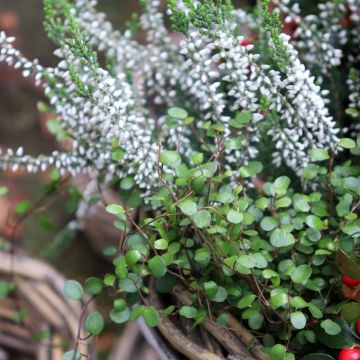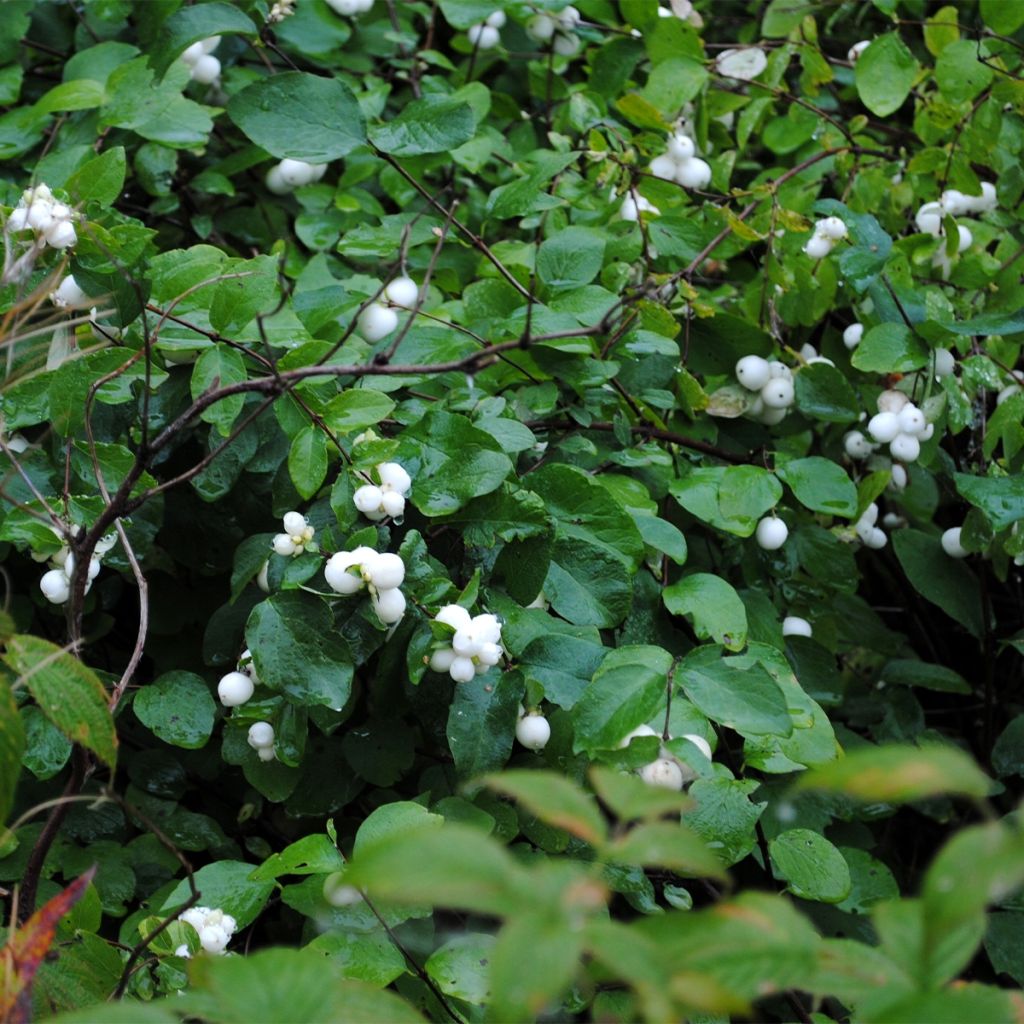

Symphoricarpos Arvid
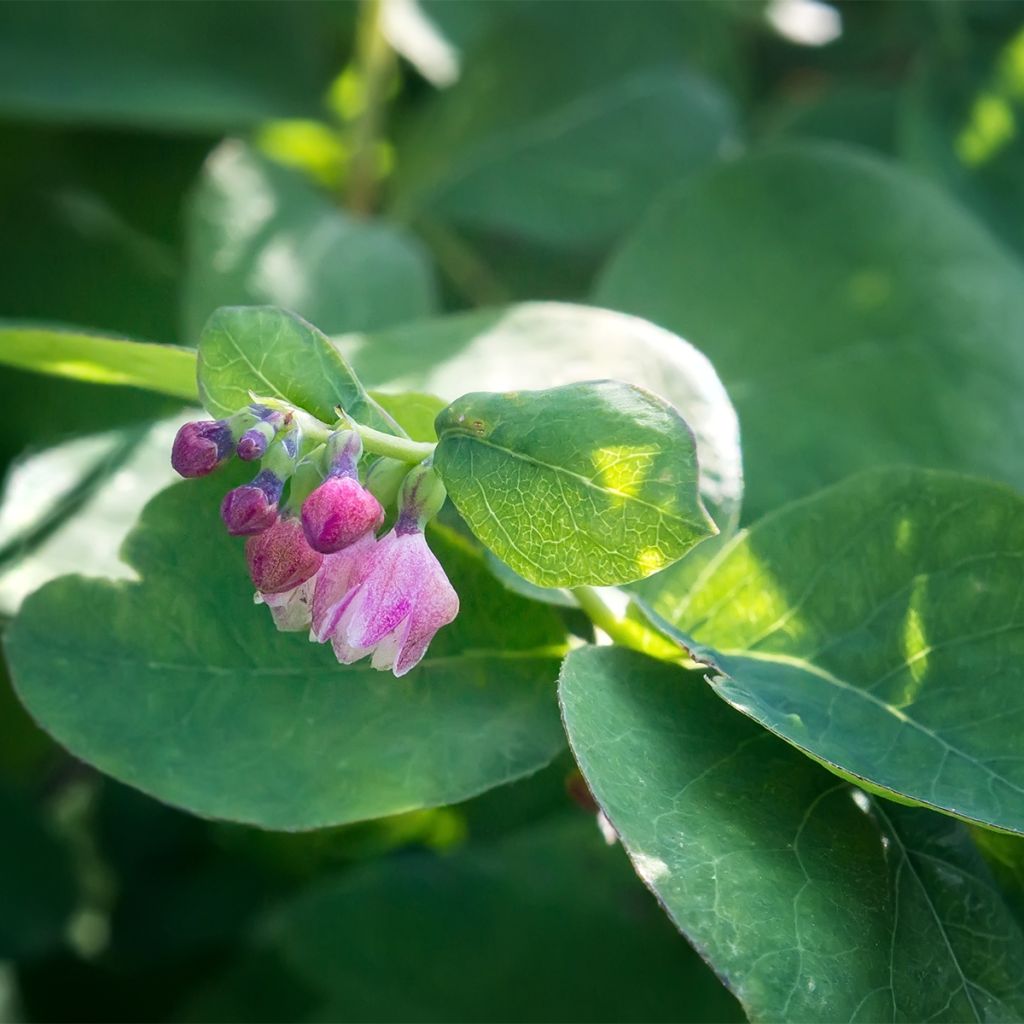

Symphoricarpos Arvid
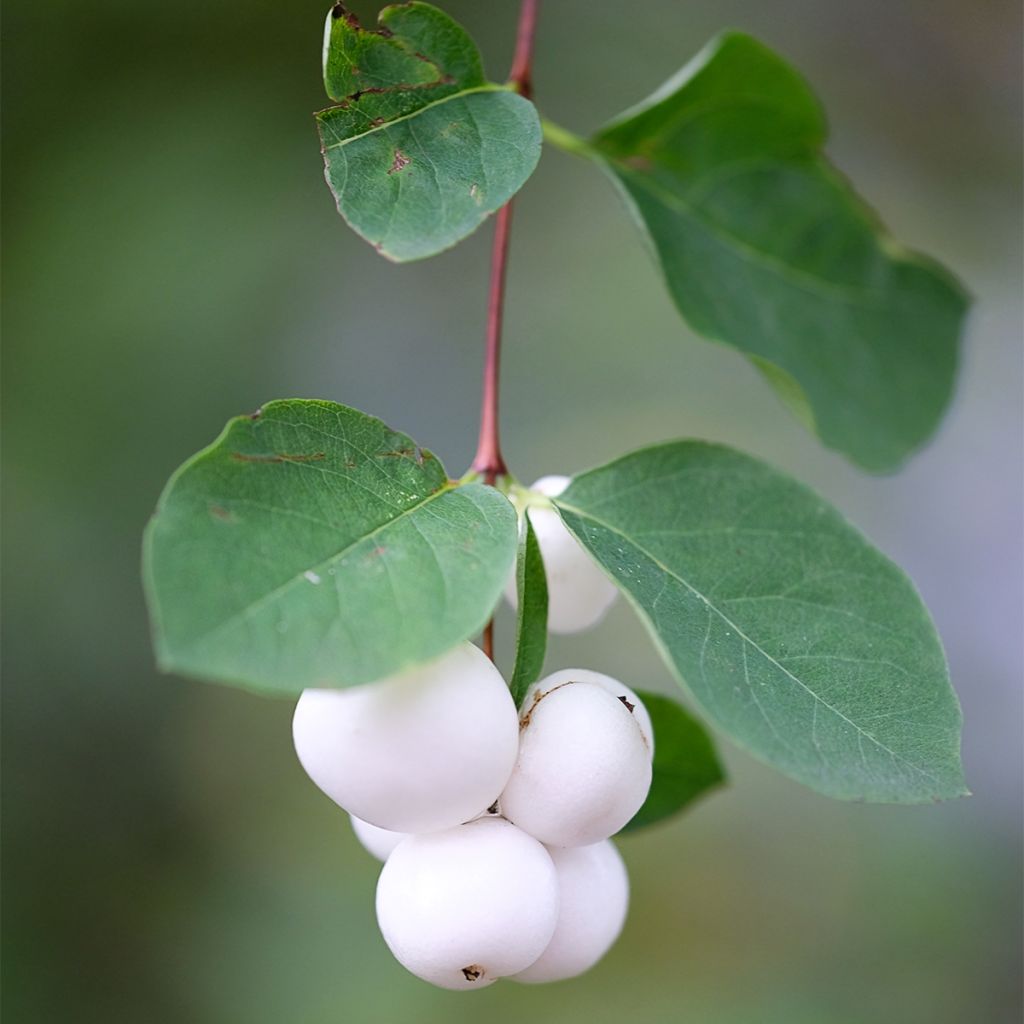

Symphoricarpos Arvid
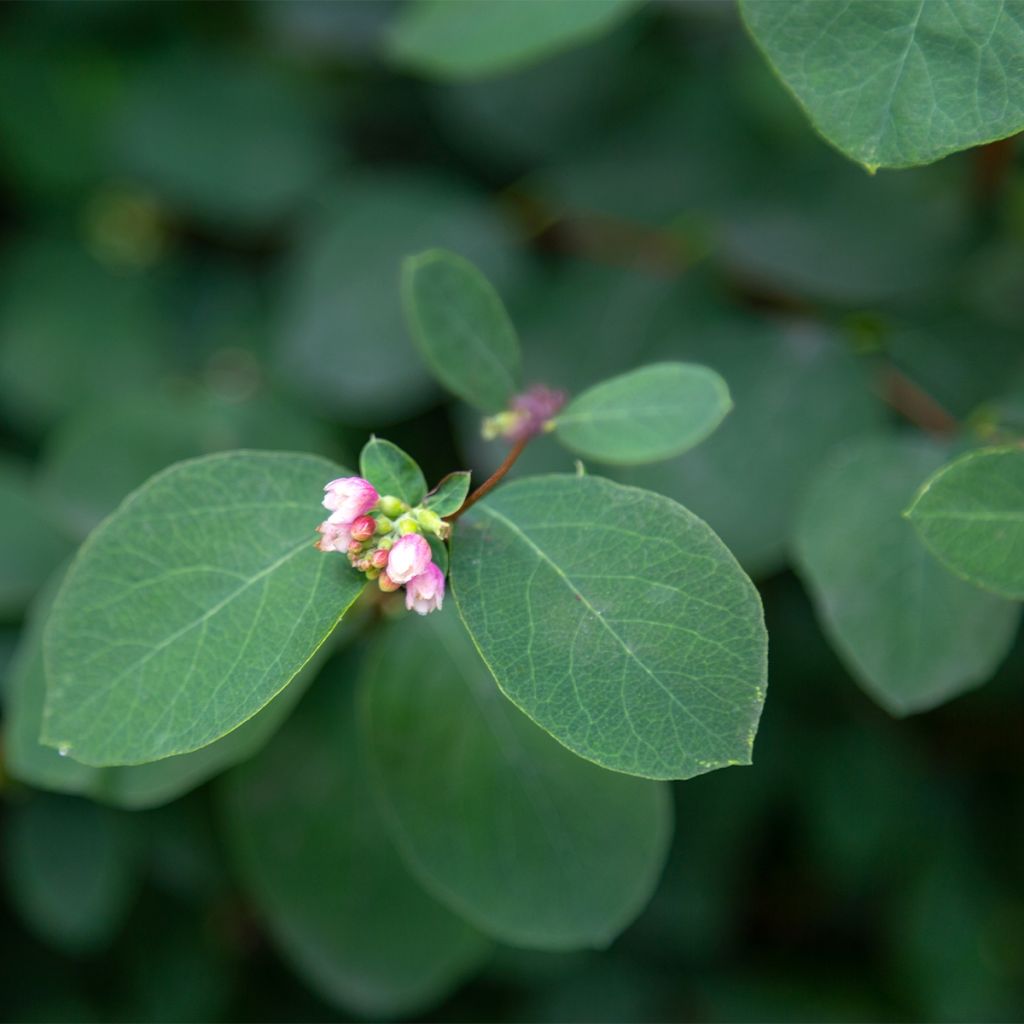

Symphoricarpos Arvid
Symphoricarpos Arvid
Symphoricarpos Arvid
Snowberry, Waxberry, Ghostberry
Why not try an alternative variety in stock?
View all →This plant carries a 24 months recovery warranty
More information
We guarantee the quality of our plants for a full growing cycle, and will replace at our expense any plant that fails to recover under normal climatic and planting conditions.
From €5.90 for pickup delivery and €6.90 for home delivery
Express home delivery from €8.90.
Does this plant fit my garden?
Set up your Plantfit profile →
Description
The Symphoricarpos 'Arvid' is a variety of Snowberry with a low and wide habit that forms perfect ground covers. It can grow in full sun and also thrives in the shade of trees, in both wet and dry conditions. As it adapts to most soils and is also very hardy, it is a valuable plant in the garden. Its flowering is quite discreet, with small white-pinkish flowers, but it then develops decorative white globose fruits. In autumn, its deciduous foliage takes on pretty yellow hues. With its rustic appearance, it is an ideal small bush for wild-inspired gardens.
The Symphoricarpos 'Arvid' belongs to the large family of Caprifoliaceae, which includes many ornamental plants in the garden such as Honeysuckles, Abelia, Kolkwitzia, Viburnums, Elderberries, and other Weigelas. This Arvid variety is a Swedish selection known for its ability to form ground covers. It is indeed a low bush (about 50 cm (20in) tall), with a very spread-out habit (up to 1.50 m (5ft) wide) and dense, well-covering foliage. Its oval leaves, of medium size and slightly bluish green, turn beautiful shades of yellow in autumn.
In June-July, small white flowers with a hint of pink appear, rather discreet but appreciated by bees. They give way to white globose fruits of approximately 1 cm (1in) in diameter in October-November, which are highly decorative and persist throughout winter. This snowberry is tolerant of various conditions. It is extremely hardy, down to -25 °C, or even -30 °C. A low-maintenance plant, generally free from diseases or insects, it is truly a gem for beginner gardeners!
Snowberries are known for their hardiness and beautiful winter fruiting. This variety will be appreciated for its ease of cultivation in shade, its rustic character, and its decorative white fruiting on gray days. It will form a beautiful ground cover in a garden that embraces nature. Many other deciduous or evergreen shrubs, with flowers or berries, will compliment it, such as Spireas, especially the lovely Spiraea cinerea Grefsheim with its flexible branches covered in white flowers in spring. The Cornus sanguinea Magic Flame, with its flamboyant autumn colors, the Lonicera tatarica Hack's Red, a bush honeysuckle with reddish-purple flowers, the Winged Euonymus with its rich autumnal colors, and a variety of botanical Roses, Hawthorns, or Barberries will blend perfectly with our Snowberry to create a natural scene in the garden.
Report an error about the product description
Symphoricarpos Arvid in pictures
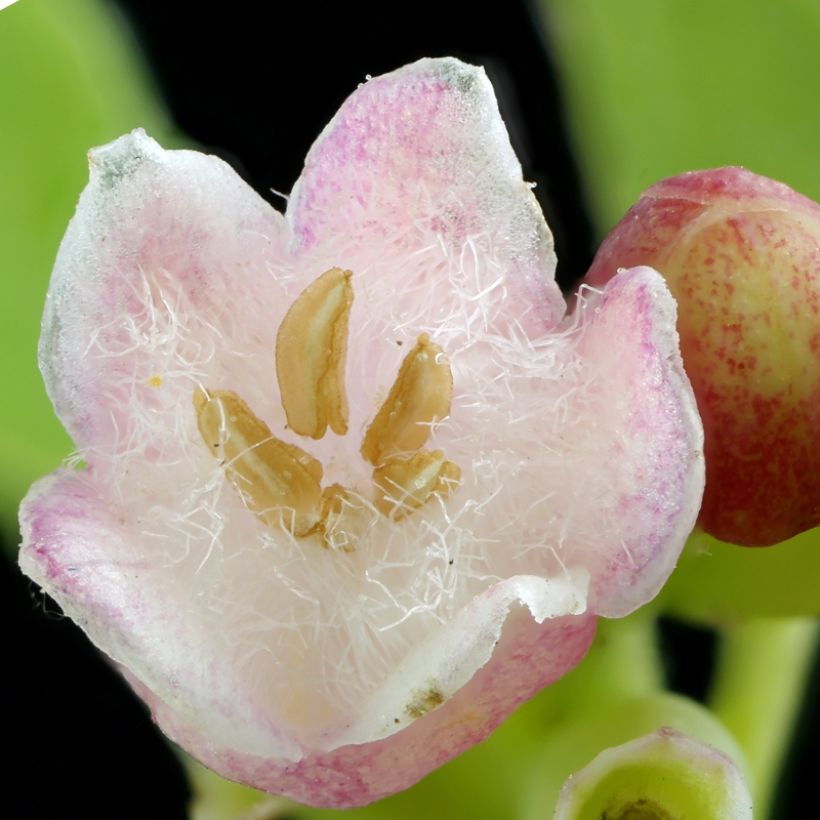

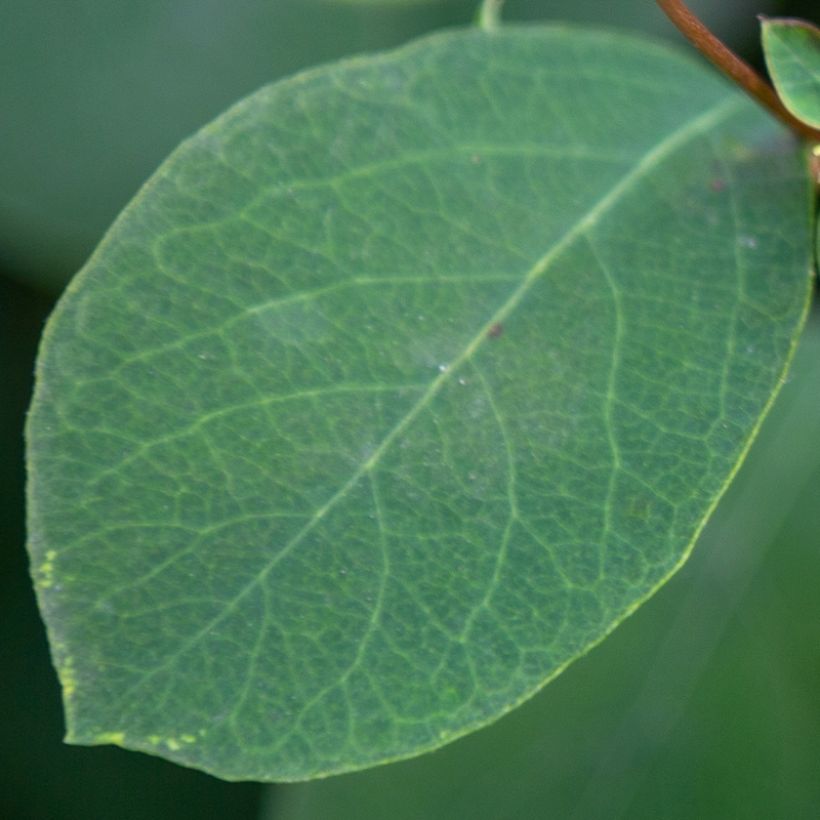

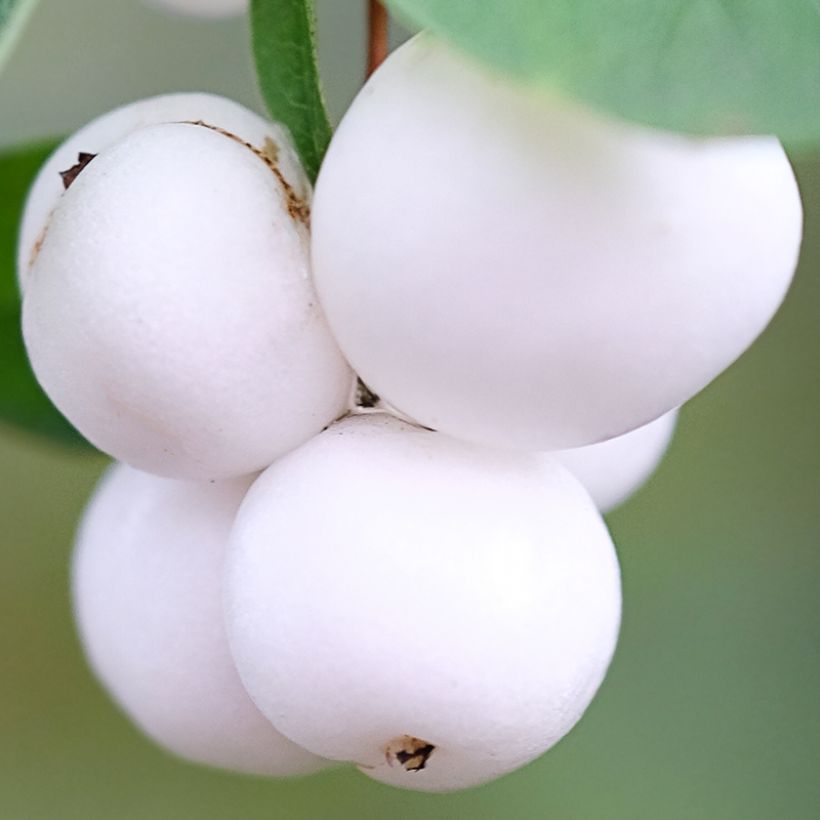

Plant habit
Flowering
Foliage
Botanical data
Symphoricarpos
Arvid
Caprifoliaceae (Adoxaceae)
Snowberry, Waxberry, Ghostberry
Cultivar or hybrid
Other Symphoricarpos
Planting and care
The 'Arvid' Symphorine is an extremely adaptable plant. Very hardy, it adjusts to all types of soil, neutral, or moderately acidic or calcareous, from moist to dry. It even tolerates clayey and moist soils, or on the contrary, dry and root-infested soils found under large trees and at the base of hedges. Similarly, it can withstand practically all exposures, from sun to shade. Easy to cultivate, it is the perfect young plant for beginners!
Planting period
Intended location
Care
This item has not been reviewed yet - be the first to leave a review about it.
Shrubs for slopes
Haven't found what you were looking for?
Hardiness is the lowest winter temperature a plant can endure without suffering serious damage or even dying. However, hardiness is affected by location (a sheltered area, such as a patio), protection (winter cover) and soil type (hardiness is improved by well-drained soil).

Photo Sharing Terms & Conditions
In order to encourage gardeners to interact and share their experiences, Promesse de fleurs offers various media enabling content to be uploaded onto its Site - in particular via the ‘Photo sharing’ module.
The User agrees to refrain from:
- Posting any content that is illegal, prejudicial, insulting, racist, inciteful to hatred, revisionist, contrary to public decency, that infringes on privacy or on the privacy rights of third parties, in particular the publicity rights of persons and goods, intellectual property rights, or the right to privacy.
- Submitting content on behalf of a third party;
- Impersonate the identity of a third party and/or publish any personal information about a third party;
In general, the User undertakes to refrain from any unethical behaviour.
All Content (in particular text, comments, files, images, photos, videos, creative works, etc.), which may be subject to property or intellectual property rights, image or other private rights, shall remain the property of the User, subject to the limited rights granted by the terms of the licence granted by Promesse de fleurs as stated below. Users are at liberty to publish or not to publish such Content on the Site, notably via the ‘Photo Sharing’ facility, and accept that this Content shall be made public and freely accessible, notably on the Internet.
Users further acknowledge, undertake to have ,and guarantee that they hold all necessary rights and permissions to publish such material on the Site, in particular with regard to the legislation in force pertaining to any privacy, property, intellectual property, image, or contractual rights, or rights of any other nature. By publishing such Content on the Site, Users acknowledge accepting full liability as publishers of the Content within the meaning of the law, and grant Promesse de fleurs, free of charge, an inclusive, worldwide licence for the said Content for the entire duration of its publication, including all reproduction, representation, up/downloading, displaying, performing, transmission, and storage rights.
Users also grant permission for their name to be linked to the Content and accept that this link may not always be made available.
By engaging in posting material, Users consent to their Content becoming automatically accessible on the Internet, in particular on other sites and/or blogs and/or web pages of the Promesse de fleurs site, including in particular social pages and the Promesse de fleurs catalogue.
Users may secure the removal of entrusted content free of charge by issuing a simple request via our contact form.
The flowering period indicated on our website applies to countries and regions located in USDA zone 8 (France, the United Kingdom, Ireland, the Netherlands, etc.)
It will vary according to where you live:
- In zones 9 to 10 (Italy, Spain, Greece, etc.), flowering will occur about 2 to 4 weeks earlier.
- In zones 6 to 7 (Germany, Poland, Slovenia, and lower mountainous regions), flowering will be delayed by 2 to 3 weeks.
- In zone 5 (Central Europe, Scandinavia), blooming will be delayed by 3 to 5 weeks.
In temperate climates, pruning of spring-flowering shrubs (forsythia, spireas, etc.) should be done just after flowering.
Pruning of summer-flowering shrubs (Indian Lilac, Perovskia, etc.) can be done in winter or spring.
In cold regions as well as with frost-sensitive plants, avoid pruning too early when severe frosts may still occur.
The planting period indicated on our website applies to countries and regions located in USDA zone 8 (France, United Kingdom, Ireland, Netherlands).
It will vary according to where you live:
- In Mediterranean zones (Marseille, Madrid, Milan, etc.), autumn and winter are the best planting periods.
- In continental zones (Strasbourg, Munich, Vienna, etc.), delay planting by 2 to 3 weeks in spring and bring it forward by 2 to 4 weeks in autumn.
- In mountainous regions (the Alps, Pyrenees, Carpathians, etc.), it is best to plant in late spring (May-June) or late summer (August-September).
The harvesting period indicated on our website applies to countries and regions in USDA zone 8 (France, England, Ireland, the Netherlands).
In colder areas (Scandinavia, Poland, Austria...) fruit and vegetable harvests are likely to be delayed by 3-4 weeks.
In warmer areas (Italy, Spain, Greece, etc.), harvesting will probably take place earlier, depending on weather conditions.
The sowing periods indicated on our website apply to countries and regions within USDA Zone 8 (France, UK, Ireland, Netherlands).
In colder areas (Scandinavia, Poland, Austria...), delay any outdoor sowing by 3-4 weeks, or sow under glass.
In warmer climes (Italy, Spain, Greece, etc.), bring outdoor sowing forward by a few weeks.

































